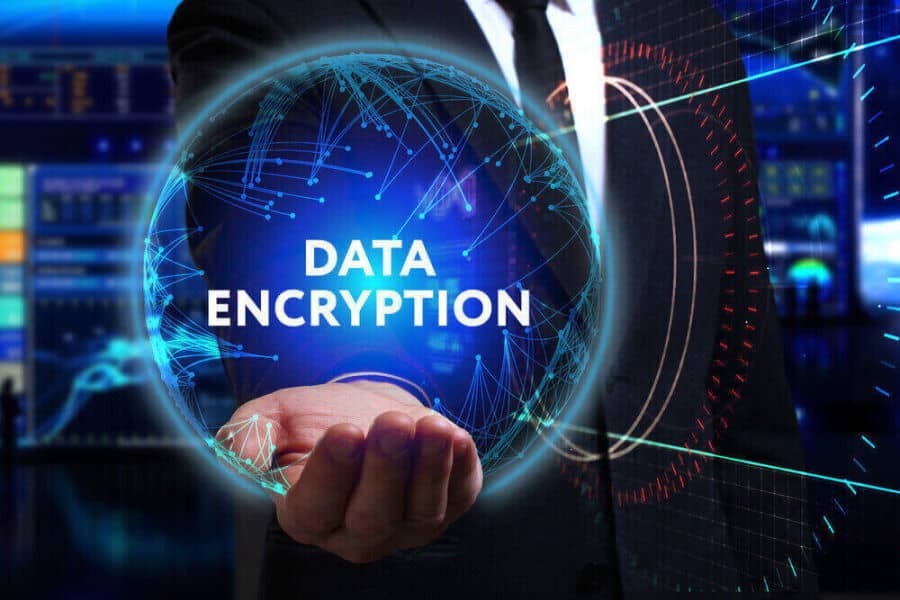Data is always being generated. Every time you click on a link, open up a new tab, create an account, and just use the Internet, you’re leaving a paper trail of data. This paper trail means that there is a lot of data to be collected, both by corporations and by cybercriminals.
These paper trails are the reasons encryption software exists—encryption is vital to your safety online. But how do you encrypt your devices, and what can be encrypted?
1. Keep Your Local Storage Encrypted
Most people stick to keeping their data on physical drives located in their devices. For example, a PC technician may choose to keep multiple hard drives in their computer and store all their data in those instead of using a cloud-based storage solution (which we will get to in a bit).
While physical storage solutions have their advantages, they are not 100% immune to data leaks and theft. A strong piece of malware—let’s say a piece of spyware—could log the data located in those drives and send said data over to the author of the software.
An unguarded hard drive leads to data leaks and targeted crimes by cybercriminals. That said, there are various ways to encrypt hard drives and other physical storage solutions. Macs come with encryption software, as well as certain versions of Windows, and there are mobile encryption solutions for mobile devices as well.
2. Encrypt Your Internet Network
The Internet contains many dangers, from cyber criminals lurking and waiting for victims to suspicious websites that are designed to steal as much data from visitors as possible. And everything you do on the Internet? Well, most of it may not be secured, and your activity may be visible to everyone else on the network.
While home networks, along with networks found in schools and businesses, are often encrypted, many aren't. And public networks lack sacrifice encryption for convenience, leading to public networks possessing an infamous reputation for their lack of security.
Using an unencrypted network puts you at risk of identity theft and data breaches/leaks. For this reason, it’s important that you always use an encrypted network. And if you don’t have access to an encrypted network, you can download VPN to encrypt your online activity.
3. Enable Encryption for Emails
Our emails contain plenty of private information. Private information that, if leaked, could cause serious harm, including identity theft, fraud, and blackmail.
The unfortunate thing is that emails are extremely vulnerable. All it takes for your emails to be stolen and logged as being on the wrong network at the wrong time, becoming victim to a website breach outside your control, and other factors that you may not even be aware of.
Because of this, it’s vital you keep your emails encrypted. Services such as ProtonMail encrypt all emails sent out and keep your data secure. That way, your emails won’t fall into the hands of cybercriminals.
4. Encrypt Cloud Storage
Cloud storage allows users to offload their data off their device and in a remote server. Cloud storage comes with a few advantages, including more space on your local storage and the safety of your data in case something happens to your hard drives or solid-state drives.
That said, cloud storage lacks the security of local storage. See, with local storage, someone will need to have the physical drive in their possession or use malware. With cloud storage, however, your data is always there on the server, and all it takes is an intelligent cybercriminal to leak it all, such as the infamous 2014 iCloud incident.
Don’t worry, though—most cloud storage providers nowadays encrypt the data server-side. And if you don’t trust a company’s ability to safeguard encrypted data, there is always a variety of encryption providers ready to encrypt your cloud data.
5. Enable Encryption for SMS Messages
How often do you send text messages? Better question, how often are you sending confidential information through text?
Many people don’t give a second thought to what they're texting and when. After all, text messages are supposed to be secure, especially if you're using a service like iMessage! Unfortunately, your text messages are just as vulnerable to being leaked as any other piece of information. And the worst part? SMS services don’t come with encryption at all.
Having your messages stolen and leaked means having a bunch of private information coming out, and some cybercriminals may even try to blackmail you.
Fortunately, plenty of encrypted messaging services exist that are both free and intuitive. Messaging apps such as Signal allow users to send and receive messages without having to worry about someone stealing their data.
6. Enhancing Data Security with Storage Area Network (SAN)
Amidst the constant generation of data through online activities, securing your digital footprint becomes paramount. Encryption serves as the cornerstone of online safety, addressing the potential vulnerabilities in various aspects of your digital life. As we explore the encryption landscape, one crucial element to consider is the Storage Area Network (SAN). To understand how to encrypt your data and enhance online security, explore solutions for SAN storage prices and visit nfina.com for more details on how their services can safeguard your valuable information.
While individuals often focus on encrypting local storage, the significance of extending these security measures to large-scale storage solutions like SAN cannot be overstated. A Storage Area Network provides centralized and secure data storage, offering a dedicated network for efficient data management. By implementing robust encryption within the SAN framework, organizations can fortify their defenses against data breaches, ensuring that sensitive information remains protected throughout its storage journey.
Conclusion
In short, everything you do can be encrypted, from your online activity to the emails you send. Take some time to read over this article and encrypt everything you think is important enough to be encrypted (Hint: everything is important enough).








